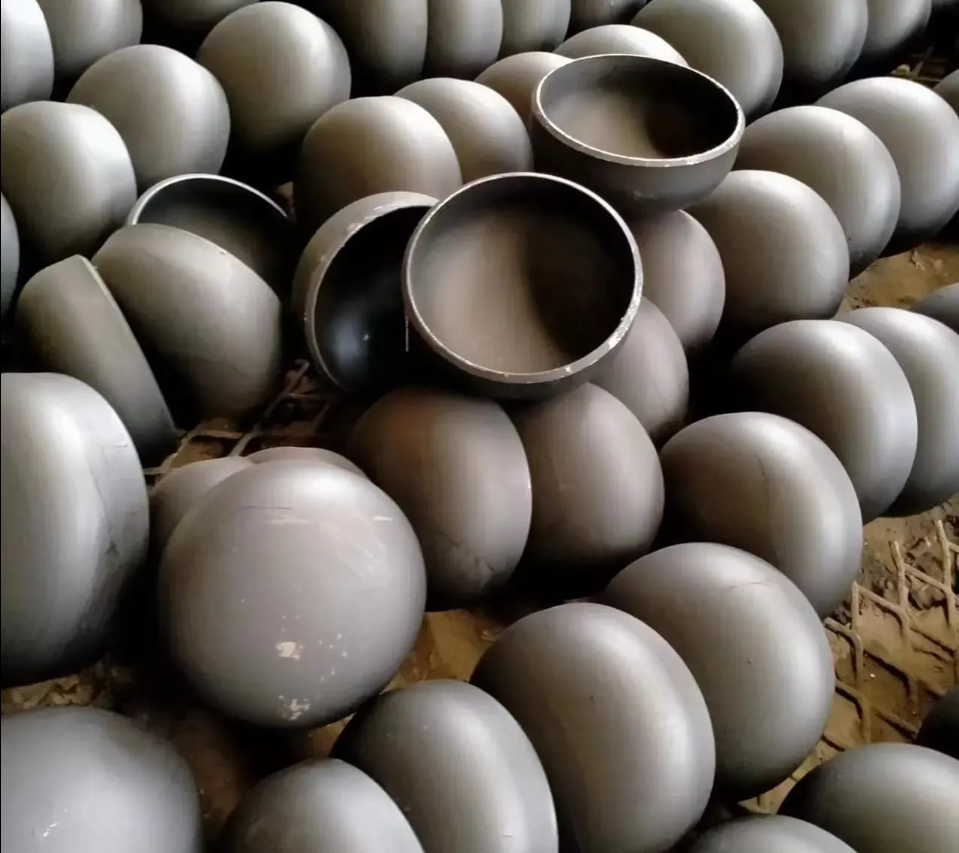-
Cangzhou Yulong Steel Co., Ltd.
-
Phone:
+86 13303177267 -
Email:
admin@ylsteelfittings.com
- English
- Arabic
- Italian
- Spanish
- Portuguese
- German
- kazakh
- Persian
- Greek
- French
- Russian
- Polish
- Thai
- Indonesian
- Vietnamese
- Zulu
- Korean
- Uzbek
- Hindi
- Serbian
- Malay
- Ukrainian
- Gujarati
- Haitian Creole
- hausa
- hawaiian
- Hebrew
- Miao
- Hungarian
- Icelandic
- igbo
- irish
- Japanese
- Javanese
- Kannada
- Khmer
- Rwandese
- Afrikaans
- Albanian
- Amharic
- Armenian
- Azerbaijani
- Basque
- Belarusian
- Bengali
- Bosnian
- Bulgarian
- Catalan
- Cebuano
- China
- China (Taiwan)
- Corsican
- Croatian
- Czech
- Danish
- Esperanto
- Estonian
- Finnish
- Frisian
- Galician
- Georgian
- Kurdish
- Kyrgyz
- Lao
- Latin
- Latvian
- Lithuanian
- Luxembourgish
- Macedonian
- Malgashi
- Malayalam
- Maltese
- Maori
- Marathi
- Mongolian
- Myanmar
- Nepali
- Norwegian
- Norwegian
- Occitan
- Pashto
- Dutch
- Punjabi
- Romanian
- Samoan
- Scottish Gaelic
- Sesotho
- Shona
- Sindhi
- Sinhala
- Slovak
- Slovenian
- Somali
- Sundanese
- Swahili
- Swedish
- Tagalog
- Tajik
- Tamil
- Tatar
- Telugu
- Turkish
- Turkmen
- Urdu
- Uighur
- Welsh
- Bantu
- Yiddish
- Yoruba

Nov . 15, 2024 18:49 Back to list
buttwelded
Understanding Buttwelded Joints in Metal Fabrication
Buttwelding is a fundamental process in metal fabrication, particularly in the construction of pipelines and structural components. This technique involves joining two pieces of metal edge-to-edge through the application of heat, pressure, or both. Buttwelded joints are celebrated for their strength and durability, making them a preferred choice in various industries, including oil and gas, construction, and manufacturing.
The Process of Buttwelding
The process of buttwelding begins with the preparation of the metal surfaces that are to be joined. This preparation typically involves cleaning the edges to remove any contaminants such as rust, grease, or oil, as these can adversely affect the quality of the weld. After cleaning, the edges may be beveled to create a V-shape that facilitates the penetration of the welding material.
Once the surfaces are adequately prepared, the two pieces are aligned and held together. The alignment is crucial as even a slight misalignment can lead to weak joints. Depending on the thickness of the material and the application, various welding techniques can be employed, including arc welding, gas tungsten arc welding (GTAW), and gas metal arc welding (GMAW).
The welding process generates heat, which melts the edges of the metal pieces, allowing them to fuse together as they cool and solidify. In some cases, a filler material is added to enhance the strength of the joint. After the welding is complete, the joint’s integrity is often inspected through various non-destructive testing methods such as ultrasonic testing, radiographic testing, or visual inspection.
Advantages of Buttwelded Joints
One of the primary advantages of buttwelded joints is their strength. The continuous nature of the weld creates a robust bond that can withstand high levels of stress and pressure, making it ideal for applications in high-stakes environments, like oil and gas pipelines, where leaks can have catastrophic consequences.
buttwelded

Buttwelding also offers a smooth finish, which is vital in applications where fluid flow is critical. The absence of protrusions (often found in other welding methods) minimizes turbulence and reduces wear on components. This smoothness also makes buttwelded pipes easier to clean, which is particularly important in industries that require stringent hygiene standards, such as food processing and pharmaceuticals.
Another noteworthy advantage is the flexibility in terms of materials. Buttwelding can be conducted on a variety of metals, including steel, stainless steel, aluminum, and alloys, which broadens its applicability across different sectors.
Challenges and Considerations
Despite its advantages, buttwelding is not without challenges. Proper technique and skill are essential; poorly executed welds can lead to defects and potentially dangerous failures. Additionally, the heat involved in the welding process can cause warping or distortion, especially in thinner materials, necessitating careful management of the welding parameters.
Moreover, buttwelding requires access to both sides of the joint, which can pose logistical challenges in constricted spaces. In situations where access is limited, alternative joining methods may need to be considered.
Conclusion
In conclusion, buttwelded joints are a cornerstone of metal fabrication, offering unparalleled strength and durability. Their application spans various industries, contributing to the reliability and efficiency of numerous structures and systems. While there are challenges associated with the method, the advantages often outweigh the downsides, making buttwelding a key technique in modern engineering and construction practices. Understanding the nuances of this process is essential for professionals striving to create robust and resilient metal structures.
Latest news
-
ANSI 150P SS304 SO FLANGE
NewsFeb.14,2025
-
ASTM A333GR6 STEEL PIPE
NewsJan.20,2025
-
ANSI B16.5 WELDING NECK FLANGE
NewsJan.15,2026
-
ANSI B16.5 SLIP-ON FLANGE
NewsApr.19,2024
-
SABS 1123 FLANGE
NewsJan.15,2025
-
DIN86044 PLATE FLANGE
NewsApr.19,2024
-
DIN2527 BLIND FLANGE
NewsApr.12,2024
-
JIS B2311 Butt-Welding Fittings LR/SR 45°/90° /180°Seamless/Weld
NewsApr.23,2024











